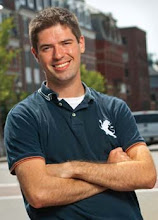My
good? better? best? friend, Briullov, wrote recently about his rejection from academia, about how that rejection wasn't truly a rejection.
Showing here. He's inspired me to write, finally, what I've been meaning to confess. What I've
obliquely hinted at, in
my own
wayIt's hard for me to describe my intellectual interests, even to the specialists in my field. It'll be still harder for them to swallow the surprises I have in store.
I haven’t always wanted to be a writer. Avoiding the opposite of that phrase, the trope “I’ve always wanted to be a writer,” was the advice I invariably heard from anyone who heard about my application to MFA Writing programs. It seemed, to them, a naturalized fact that anyone applying to such a program would have always wanted to write. Such a statement would be redundant, at best. To the contrary, I thought of writing as an escape route when I needed to detox from “real life.” I surrounded myself with philosophical treatises about the contingent individual and the postmodern context, and reassured myself that of the potentialities that once surrounded my existential being, I had chosen a definite path with a clear conclusion. This application is the physical manifestation of the thesis that I had not found such a path, not yet. The three years of developing professional and creative writing skills in pursuit of an MFA in Writing will enable me to embrace writing consciously in ways I hadn’t allowed myself to previously.
Using “escape” as the word to describe writing is in its own way ironic, for escapism, in hindsight, also fueled my previous career path. It was the most valid answer I could provide when I explained why I double majored in Russian and linguistics at the University of New Hampshire; how could one get further away from one’s roots in small-town New Hampshire than by flying across the world? Escapism - from the collapsing economy, from the job market - drove my flight into the “Ivory Tower.” I spent a year studying architects’ projects and rhetorical patterns at the Moscow Architectural Institute with a Faustian Contract, and secured myself a place in the entering PhD cohort at The University. I was fascinated by the concept of potentiality. Even though I studied architects who worked in the 1930s through 1950s, the height of Stalin’s terror and purging, the era defined in historical memory by the Gulag, I was less interested in rebellion and revolt than I was in the prospect of discovering how these individuals negotiated their spaces, enabled one another, and found creative outputs for their ideas. I could never have articulated it as such in the moment, but I was consumed by the reverberations of these aesthetes’ escape from the mundane existence of a terrorized Soviet population into their dreamworlds and fantasies.
Writing creatively was a tool for history. When I wrote for myself, the stories took on fantastical elements, as exemplified in the first story of my portfolio, “The Dream of a Radiant Future.” Yet as I continued to inculcate myself further with the theses and postulates of postmodern historiography, as I felt my mind bend (as any mind ought bend under the pressures of a quality education), I confronted the deep truth that the questions I asked were not historical questions, and were not questions that the discipline could easily subsume. Writing may have been a tool for history, but my interest in history was an improper expression of a deeper desire - to tell stories. When I accepted that idea, I realized I had always entertained the notion of a manuscript, a book deal, rescuing me from a PhD program in which I could perform admirably, but which I did not enjoy.
I have practiced telling this narrative, at least up to this point. A parallel narrative, about which I have spoken less because I am continuing to come to terms with it, regards my own identity. This past summer I came out as a bisexual man. The second story of my portfolio, “Should Ariel Be a Handsome Man,” arises from that decision. As I continue to accept myself, I hope to refine my thoughts and narrative techniques, to address the distinction between “gay and lesbian fiction” and mainstream literature. By that statement I do not mean that the only stories that interest me involve homosexual or non-heteronormative individuals. To the contrary, I hope to learn techniques in this program to address the normalized perception that there ought to be a distinction between gay writers for gay audiences and straight writers for straight audiences.
In contrast to the professorship I would surely have to pursue if I continued to study Russian history, I have opened myself up to a new set of possible outcomes and job opportunities. Allowing myself to contemplate three years of intensive creation and writing instruction imbues me with the hope that fiction writing will cease to be an exercise in escapism. Instead of perceiving an unbridled cluster of contingent paths, I am embracing the chance to write for writing’s sake, to practice ars gratis artis. In her article, “The Contingent Person and the Existential Choice” (Philosophical Forum Vol XXI 1989-90), Agnes Heller writes: “We cannot know ourselves, nor can others know what we ‘really’ are before we became what we are.” I may not have thought that I wanted to be a writer, but the concept of writing creatively always became a driving force in the ambitions I pursued.
